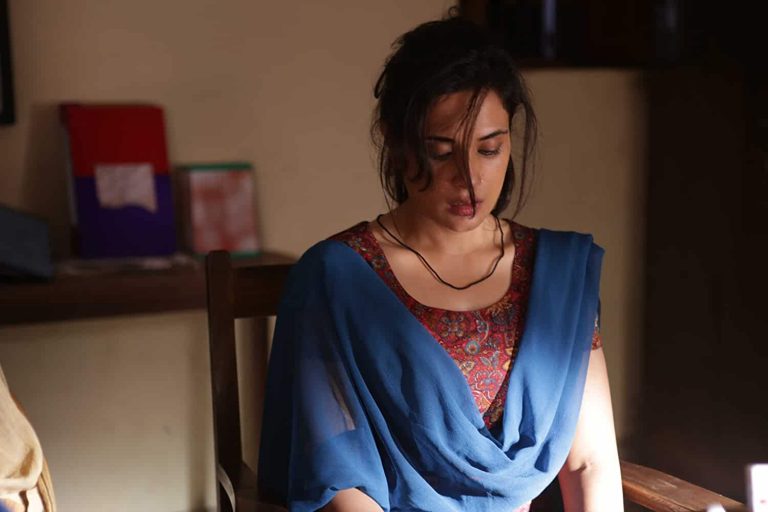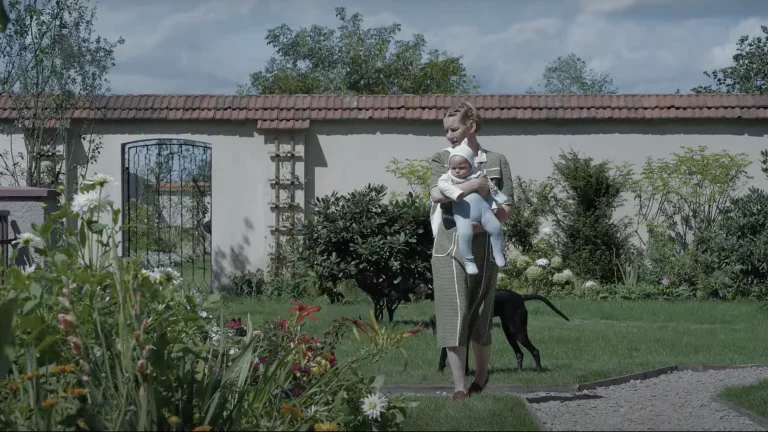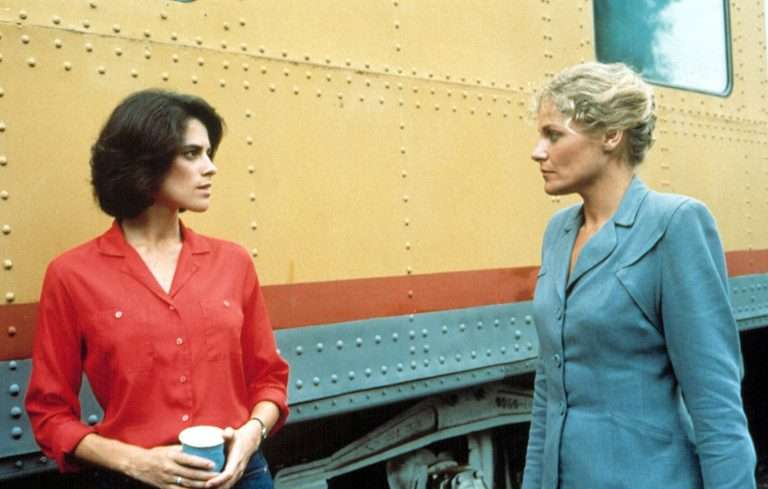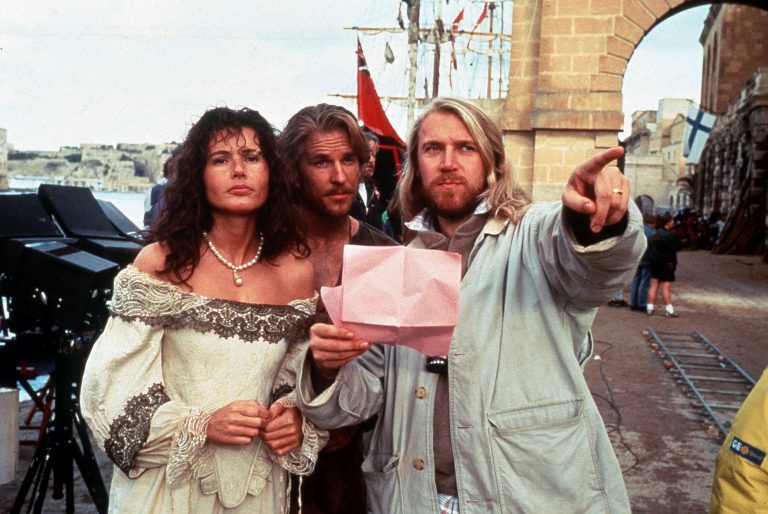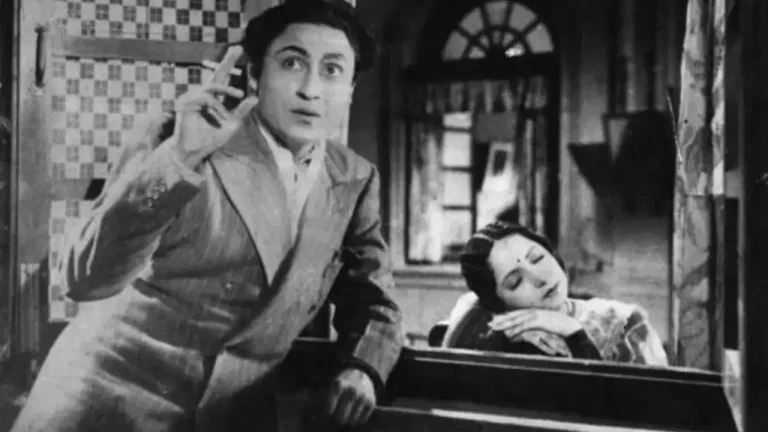The last I remember a film scene with a man, a woman, and a broken-down car questioning gender roles, it was 2007, and “Transformers” had just come out. Karan Gour’s “Fairy Folk” (2024), opens with a broken-down car in the middle of the wilderness. Mohit (Mukul Chadda), a middle-aged man, is desperately trying to fix the car, and Ritika (Rasika Dugal), his wife, is desperately trying to get them out of there. This chaos is interrupted by a wandering fairy that follows them home, into the city. The couple calls their friends for help when they realize that this creature (Nikhil Desai) looks just like a human but has no genitals or a pulse.
They try to get rid of the creature by making it follow them into the forest again and tying it up to a tree. But in a moment of trying to be human to a non-human creature, they give up and accept the creature imprinting on them. Mohit and Ritika are surprisingly comfortable throughout this outlandish encounter. They are a couple that hosts many house parties and to them, this bizarre house guest seems to be another welcome distraction from each other. What was initially fear turns into investigative curiosity as the couple learns different ways of communicating with the creature. Initially, their relationship with the creature is that of order and obey but once the creature is shown affection, it turns into a human with a conscience.
This new human (Chandrachoor Rai) claims also to be Mohit or at least his version of one. One of the first things these creatures do when they turn human is to eat uncontrollably and cry until they’re comforted, much like the first few hours of a human baby. The creature spends time with the couple and eventually becomes Kabir, a third person in Mohit and Ritika’s home. He struggles to form opinions and realize his independence as an individual.
Through a process of realizing himself, he finds comfort with Ritika and forms a romantic relationship with her as well. Reluctantly, Mohit comes to terms with the changes in their life. Mohit feels insecure with this new dynamic and wants to find somebody new that would balance out their equation. What seems like a situation of an open marriage turns into a counterintuitive process as Mohit and Ritika seek a version of each other, but with tweaks. So instead of changing themselves and working on their relationship, they find supernatural distractions to escape their problems.

Mohit is very meticulous about following the same process as before. He is committed to finding a solution to his problems through this fair bargain with the fairies. Ritika on the other hand, seems to take this lightly. She’s distracted by work and Kabir, and she clearly doesn’t have much to gain out of the new creature. However, Mohit doesn’t give up easily. He pushes Ritika through the process, eagerly waiting on his new partner.
When the new Ritika arrives, she is a woman but looks like a man. This creature (Asmit Pathare) comes just like Kabir did but finds herself in a much more complicated situation. In trying to identify herself and find her place in their home and the world, the creature names herself Hansa. Hansa desires to be independent, she wants to be her own person a lot more than Kabir ever let on. One of the reasons she asserts herself also comes in defense of feeling unwanted by Mohit. Ironically, it is Mohit that makes her feel like it’s okay to accept his help. Mohit’s understanding of being a provider is also conflicted in how helpful he is willing to be towards Hansa than he was to Kabir.
Mohit and Hansa’s relationship teases around the lines of friendly and affectionate. Mohit questions and resists this fluidity. In the film, which is largely an improvised plot, there is a pivotal scene that reveals that Ritika and Kabir had manipulated Mohit into having an emotionally vulnerable conversation with Hansa. When Mohit realizes that he has been pushed against a wall, his own insecurities explode in his face. From the get-go of the film, Mohit is seen as afflicted by his male ego. In his weakness for fixing cars in a crisis or his apprehension of Kabir being the “bigger man”, Mohit succumbs. He misses out on finding a real connection in pursuit of finding the conventionally right one.
Hansa succumbs as well, in accessing her free will. She becomes self-sacrificial in her feelings towards Mohit and commits to the purpose for which she came into the human world. When Hansa goes missing, Rikita is worried and shocked. Mohit is caught off guard, relieved and accepting of this new person that replaces Hansa; one who comes in with her long open hair, wearing Mohit’s old t-shirt. After watching Mohit nitpick all the problems out of his life, one can hope he’s got everything that he asked for. But in the last scene of the film, we see Mohit unhappily driving in the car with his new partner, perhaps towards the forest again.
This film becomes a balancing exercise in empathy and frustration towards the characters. Regardless of the whacky themes and characters, the most absurd thing about the film remains its realness. In an interview with Platform Magazine, director Karan Gour speaks about how he decided to explore the concept of an improvised film where the actors would have a basic script outlining the plot and character motivations but would improvise their dialogue and actions within each scene. He goes on to explain how he provided the actors with separate documents detailing their character motivations before each scene, allowing them to understand the overarching story and their character’s mindset before entering the scene.
The actors, true to their characters, give so much to the film beyond its story. In another interview with Real Studio Podcasts, the director mentions the process of the scene where Mohit is cornered, which is also the scene mentioned above. While performing that scene, Mukul Chadda felt so stonewalled by Rasika Duggal and Chadrachur Rai that he had to call cut on the scene himself and request for some more cues to grab onto in this tricky situation. In moments like these, “Fairy Folk” sets itself apart from other magic realist dramas.
The film uses an unlikely cross between the supernatural elements and everyday life, as a metaphor for seeing our lives for what they truly are. The fairy folk in this film hold up a mirror to the chasms in life that we common folk have become oblivious to. This is a film that brings in an unhackneyed narrative to the independent cinema space, a much-needed refresher from the genre. Post facing difficulty with distribution, the film is available to watch at https://www.fairyfolkthefilm.com/, following a pay-as-you-like system.

